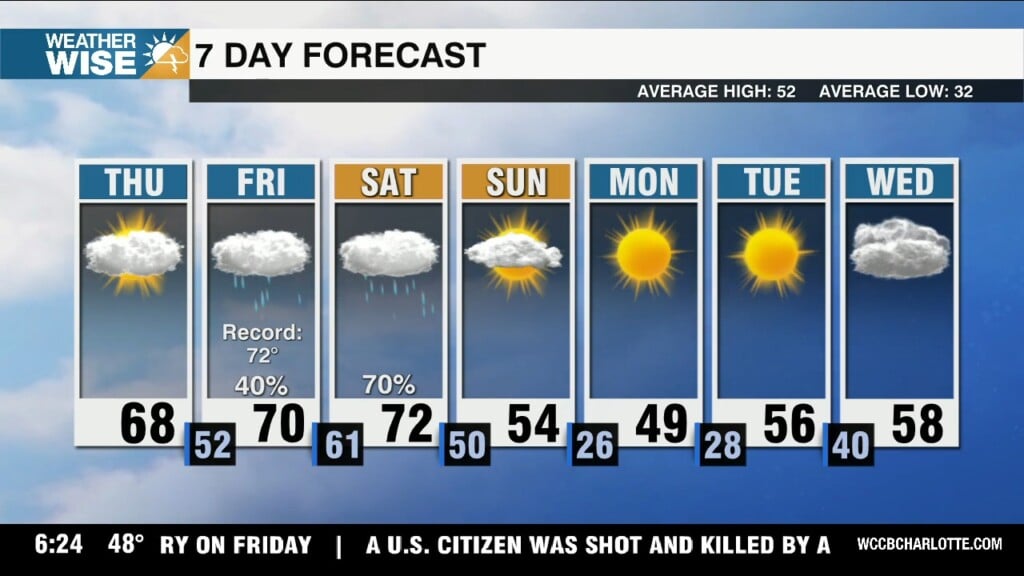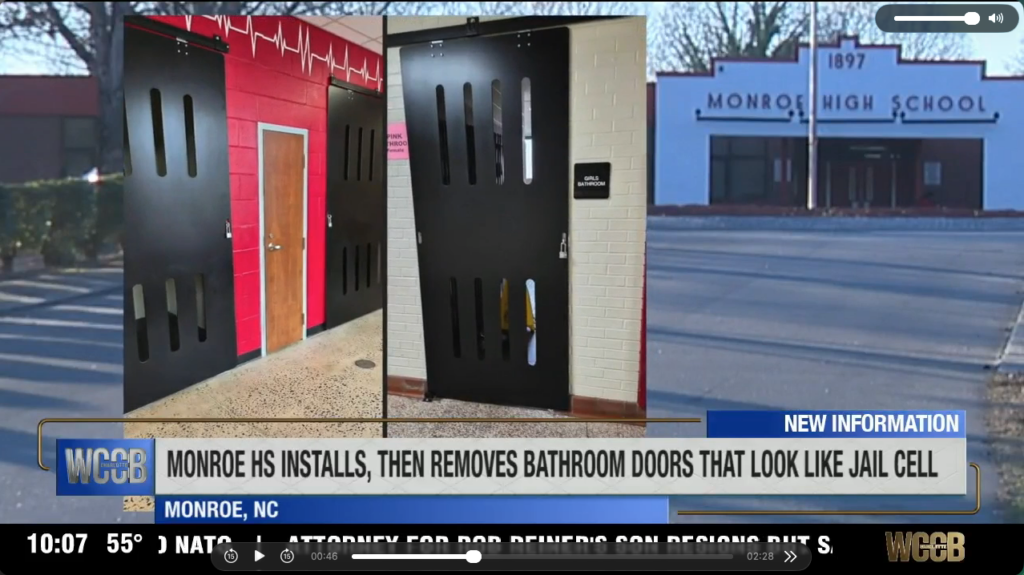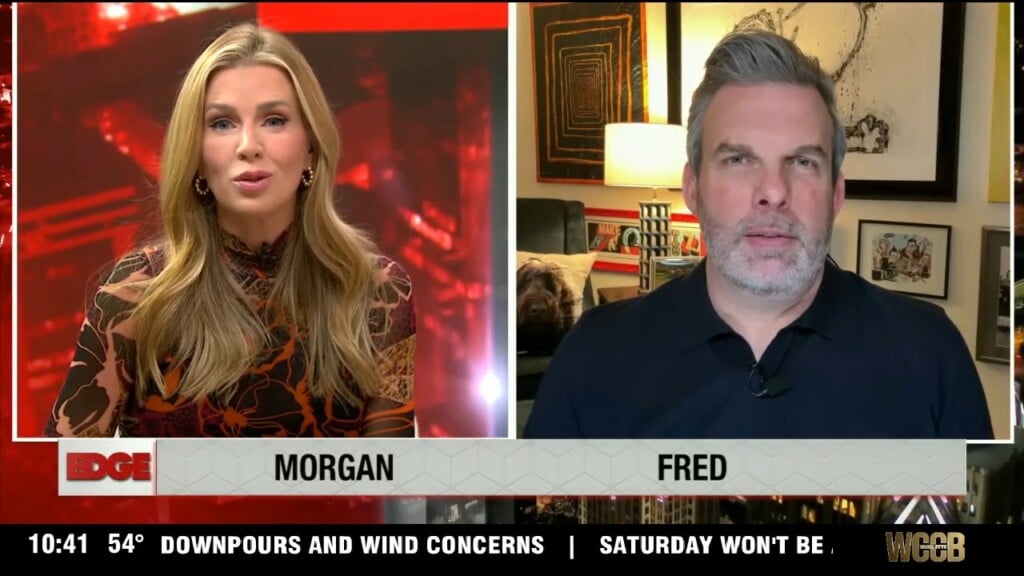CHARLOTTE, N.C. – President Barack Obama addressed the American Legion National Convention in Charlotte Tuesday.
The president’s speech to the legionnaires aimed to draw attention to administration initiatives to fix problems within the Department of Veteran Affairs.
Obama announced 19 new executive actions during his speech.
They include a new recruiting campaign to fill shortages of doctors and nurses at VA hospitals and new efforts to cut down the disability claims backlog and move to a paper-less system.
He also designated $78 million dollars towards PTSD research to help prevent suicides and also, a new culture of accountability within management under the new VA Secretary Bob McDonald.
“Bob and the VA now have the authority to more quickly remove senior executives who don’t meet our high standards. If you engage in unethical practices, or cover up a serious problem, you should be and will be fired,” said Obama.
Obama faced a tough crowd – thousands of Veterans who say they’re skeptical about what they heard in his speech.
“It’s easier to say things, but to get the action completed is very different,” said Carmen Streit-Smith.
The President’s orders expand on a bill passed by congress earlier this month. It allocates $16 billion dollars to overhaul the VA.
“The theories are there and the good intentions, it seems great but it’s waiting for it to come into effect that causes the skepticism,” said Streit-Smith.
Here are the full details about the new executive actions Obama announced during this visit to Charlotte:
FACT SHEET: President Obama Announces New Executive Actions to Fulfill our Promises to Service Members, Veterans, and Their Families
Today, President Obama will address the American Legion’s 96th convention and outline the five priorities the Administration is focused on to ensure we are fulfilling our promises to service members, veterans and their families: delivering the quality health care veterans have been promised; ensuring all veterans have every opportunity to pursue the American Dream; providing the U.S. Department of Veterans Affairs (VA) with the resources our veterans deserve; protecting the dignity and rights of all veterans; and eliminating the decades-old disability claims backlog.
The President will announce 19 new executive actions to serve the military community, including new efforts to strengthen service members’ access to mental health care. The President will also highlight efforts to improve the transition between DoD and VA care for those leaving military service, and improve economic opportunity for our military families with new private-sector commitments that will make it easier to obtain mortgage interest rate reductions and reduced monthly payments – helping more of our troops save money through lower monthly payments. The President will also announce that the Administration is continuing to make significant progress toward reducing the number of veterans who suffer from homelessness. Over the past four years a third of homeless veterans, nearly 25,000, have moved off the streets, out of shelters and into housing. The President will also renew his call for community action — asking every American to do their part to support our service members, Veterans, and their families.
All of these announcements, including the new executive actions and progress being made on existing efforts, reflect the commitment of the President and his administration to expanding opportunity for those who sacrifice so much to serve our country:our service members, veterans and their families.
Delivering the Health Care Veterans Have Been Promised
Access to Quality VA Healthcare
The President and VA are committed to ensuring that veterans have access to the timely, high-quality health care that they have earned and deserve. Over the last several months, we have seen inexcusable delays in care at some VA health care facilities. We have taken a number of steps already to change the way VA does business to ensure that this never happens again, and we will keep at it as long as it takes.
- Improving Access to Care: To improve the access to care for our veterans, VA has taken several initial steps over the last several months, including: Reaching out to over a quarter million veterans to get them off wait lists and into appointments sooner and training or re-training approximately 10,000 schedulers. Additionally, VA has surged resources to the hospitals and clinics that need it most, including Phoenix. This includes deploying mobile clinics, adding more clinic hours, and recruiting additional and temporary staff members to VA medical centers nation-wide.
- Accountability: As the President has made clear, those responsible for manipulating or falsifying records at VA must be held accountable. VA established an independent accountability review board to review employee actions and hold them accountable where there is misconduct. VA has proposed action to relieve several employees of their responsibilities; additional investigations continue.
- Recruiting the Best Medical Professionals: This week VA will announce that it is launching a new recruiting campaign designed to help attract the best and the brightest medical professionals to work in the VA system, and to fill the shortages in health care workers, including doctors and nurses, at many VA facilities.
- Electronic Health Records: Key to helping Veterans and Service members receive better, safer, and more efficient care is modernizing VA and DoD’s Electronic Health Record systems. Today, more than 5.3 million records are jointly accessible and more than 1.5 million pieces of health data are shared daily. By the end of this fiscal year, the Joint Legacy Viewer will be deployed to more DoD medical centers and every VA medical center. This viewer will allow DoD and VA providers to see nearly all of the electronic health records stored in both Departments’ systems, including doctors’ notes, problem lists, and inpatient discharge summaries.
- New commitment to Transparency: For the first time ever, VA is providing the public with regular, updated information on the timeliness of VA care and will continue to report regularly on quality of care on VA.gov. This is more information than any private hospital in the United States currently provides.
- Protections for Whistleblowers: VA has reaffirmed and strengthened its commitment to protections for whistleblowers and the new leadership has been clear that retaliation against, or intimidation of, whistleblowers will not be tolerated. In addition, the VA has been working to achieve compliance with the Office of Special Counsel’s whistleblower protection certification program.
- Reforming VA: Over the last several months, the Administration has taken action to reform the way VA operates. The 14-day scheduling goal has been removed from employee performance plans, and Secretary McDonald is convening a panel of experts to make recommendations on new standards for access to care. We will also establish a new board of physicians to advise the Secretary on best practices for delivering timely, quality care to our veterans, and to ensure that VA care remains the best care anywhere.
Veterans Mental Health
The President will announce 19 new executive actions to improve the mental health of service members, veterans, and their families, which builds on the progress the Administration has made since the President’s 2012 (Mental Health) Executive Order. In response to the 2012 Executive Order, VA has increased its mental health staffing, expanded the capacity of the Veterans Crisis Line, and enhanced its partnerships with community mental health providers; DoD and VA worked to increase suicide prevention awareness and, DoD, VA and the National Institutes of Health jointly developed the National Research Action Plan on military and veteran’s mental health to better coordinate federal research efforts. The new mental health executive actions will fall under the following six categories:
- Improving Service Members’ Transition from DoD to VA and Civilian Health Care Providers: DoD will now be automatically enrolling all service members leaving military service who are receiving care for mental health conditions in the Department’s inTransition program, through which trained mental health professionals help these individuals transition to a new care team in VA. Currently, service members must be specifically referred to inTransition by their DoD provider or seek out the program on their own. Additionally, VA will implement a new policy to ensure that recently discharged service members enrolling in the VA health care system maintain access to mental health medication prescribed by an authorized DoD provider regardless of whether the medication is currently on VA’s formulary, unless the health care provider identifies a specific safety or clinical reason to make a change.
- Improving Access and Quality of Mental Health Care at DoD and VA: VA will pilot the expansion of mental health peer support to veterans being treated in primary care settings. In addition, DoD has initiated action to do what they can under its authority and will continue to work with Congress to take action to bring TRICARE, DoD’s health care coverage, up to full mental health and substance use disorder parity, meaning benefits for these conditions are generally on par with benefits for medical/surgical conditions.
- Continuing our Commitment to Improve Treatments for Mental Health Conditions including PTSD. In support of the National Research Action Plan on military and veteran’s mental health, the DoD and the National Institutes of Health are launching a longitudinal project focused on the early detection of suicidality, PTSD, and long term effects of TBI, and other related issues in service members and veterans. VA is launching a $34.4 million suicide prevention study involving 1800 veterans at 29 VA hospitals. In support of the President’s BRAIN Initiative, the Defense Advanced Research Projects Agency (DARPA) is announcing a new $78.9 million research program to develop minimally-invasive neurotechnologies that may help treat many diseases, including PTSD. In addition, the White House announced that this fall it will host the White House BRAIN conference, including a focus on PTSD and TBI.
- Raising Awareness About Mental Health and Encouraging Individuals to Seek Help:VA and DoD are expanding their suicide prevention and mental health training for healthcare providers, chaplains, and employees who work directly with veterans.
- Improving Patient Safety and Suicide Prevention: VA and DoD are taking action to provide new opportunities for service members, veterans, and their families to give back unwanted medications, and thereby help reduce the opportunities for abuse. The Departments are also taking action to encourage firearm safety and reduce the risk of overdose.
- Strengthening Community Resources for Service Members, Veterans, and Their Families: While all individuals can experience mental health conditions, service members, veterans, and their families may experience stressors unique to their time in the military. Understanding military culture and the experiences of service members and their families can help community providers best serve these individuals. DoD and VA will disseminate its existing military cultural competency training to 3,000 community mental health providers during FY 2015.




